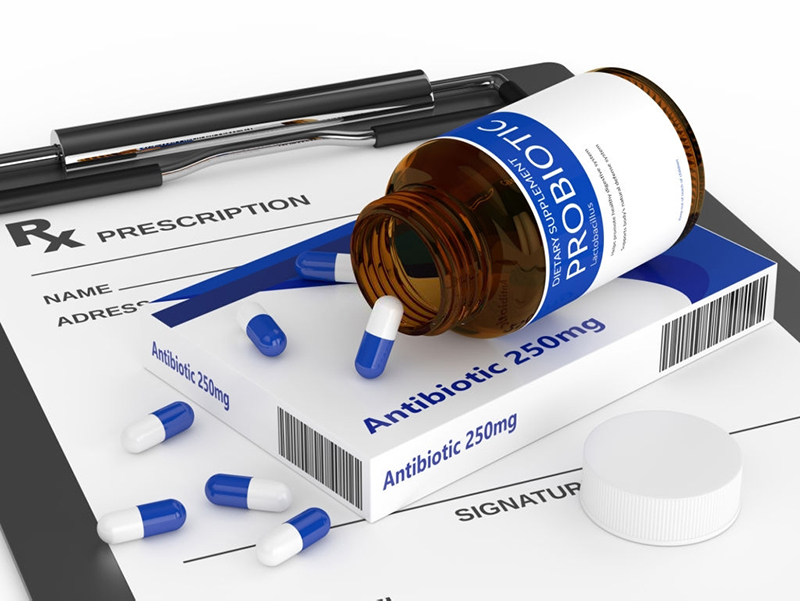Despite the fact that some bacteria can cause illness and discomfort, germs are necessary for life and wellness. Probiotics are bacteria that are beneficial or friendly to the body. Probiotics are living bacteria and yeasts that provide a wide range of health advantages. The repair and balance maintenance of healthy bacteria in your digestive tract is one of these advantages. This is especially useful if you’ve recently recovered from an illness or are undergoing treatment such as antibiotics. probioticseverything.com probiotics vs antibiotics
Prebiotics, which are similar to the food that probiotics require to exist, are required to keep your probiotics alive and active. Prebiotics can be found naturally in your gastrointestinal tract or easily obtained through your food. Prebiotic foods are typically high in non-digestible fiber, which can be found in many vegetables and grains. probioticseverything.com probiotics vs antibiotics

BACTERIA’S BENEFITS
Hundreds of chemicals are regularly synthesized by bacteria in your body, which are typically present on your skin, mouth, and stomach, to protect you from other hazardous germs. Beneficial bacteria can produce natural antibiotics that fight pathogenic bacteria. Friendly bacteria can form unique barriers, such as mucus in the digestive tract, which trap disease microorganisms. probioticseverything.com probiotics vs antibiotics
DIGESTION CAN BE HELPED BY PROBIOTICS.
Antibiotic-associated diarrhea (AAD) occurs when medications disrupt the digestive tract’s natural balance of good and harmful bacteria, allowing harmful bacteria to thrive. According to the NHS, there is some evidence that taking large doses of some probiotics in conjunction with antibiotics can help prevent AAD. Antibiotics can occasionally wipe out the protective gut flora, which is bad for your digestive system if you don’t take probiotics. Probiotics are supposed to kill or slow the growth of dangerous bacteria, preventing them from creating toxins that can make you sick. probioticseverything.com probiotics vs antibiotics
Similarly, probiotics may aid in the reduction of bloating and gas in certain patients suffering with irritable bowel syndrome (IBS), a prevalent, long-term digestive disorder. Probiotics aren’t for everyone with IBS, but the National Institute for Health and Care Excellence (NICE) recommends taking them for at least four weeks if you want to give them a try. probioticseverything.com probiotics vs antibiotics
Lactose intolerance is a digestive disorder in which the body cannot digest lactose (a sugar found in milk and dairy products). According to the NHS, several studies have suggested that bacteria such as lactobacillus acidophilus can help lessen the symptoms of lactose intolerance, such as stomach cramps, gas, and diarrhoea. This is still being looked into. In the interim, if you’re lactose intolerant, you might want to try lactobacillus acidophilus probiotic preparations (not yogurts) to see if they assist. probioticseverything.com probiotics vs antibiotics

WHEN DEALING WITH BACTERIA, THERE ARE 5 THINGS TO KNOW.
1. WERE YOU AWARE THAT ANTIBIOTICS WEAKEN YOUR IMMUNE SYSTEM?
Consider whether antibiotics are truly necessary. If you have the flu, you are suffering from a virus-related sickness. Antibiotics are only effective against bacteria, not viruses. In such instances, it is preferable to strengthen rather than decrease your immune system by drinking plenty of fluids, sleeping, and eating nutrient-rich foods. If you do start taking antibiotics, make sure you finish the course to avoid developing resistance, and it’s also a good idea to take probiotics afterward to re-establish your natural flora. probioticseverything.com probiotics vs antibiotics
2. THE USEFULNESS OF A TOOTHBRUSH
Do you change your toothbrush on a regular basis and keep it near the toilet? Brushes should be replaced every three months at the absolute least. They begin to lose their effectiveness after that and begin to gather bacteria. According to research, bacteria in your mouth can enter your circulatory system and increase your risk of cardiovascular disease. Another benefit of keeping your toothbrush near the toilet is that bacteria will more likely splatter your brush every time you flush the toilet if you leave it there. probioticseverything.com probiotics vs antibiotics
3. ARE YOU AWARE THAT THE APPENDIX HAS A PURPOSE?
The appendix is a microbial reservoir in the body that can restart the digestive system. The appendix was discovered to operate as a repository for microorganisms that are necessary for proper digestion. It may also help to re-establish the digestive system after a sickness like amoebic dysentery or cholera, which kills healthy bacteria and cleanses the gut.
According to studies, modern, industrialised society has rendered this role obsolete; dense populations now allow for easier bacteria transmission among humans, allowing intestinal organisms to regrow without the assistance of the appendix. In ancient times, when there were fewer people, epidemics such as cholera could wipe out entire communities, and the appendix provided survivors with a key individual source of necessary bacteria. probioticseverything.com
4. THE WAY YOU DO YOUR LAUNDRY IS IMPORTANT
Do you wear your underpants with your kitchen towels? Harmful bacteria, mold, and mildew can withstand a wide variety of temperatures and be transferred from your underwear to your underwear or vice versa. Towels and sheets should be laundered separately from regular clothing on a hot and lengthy wash cycle. It’s not a good idea to combine your everyday clothes with laundry from the kitchen or the bathroom. Not only are textiles diverse, which might impair cleaning effectiveness, but bacteria can also ‘jump’ or contaminate other garments.
5. CAN YOU SNEEZE PROPERLY?
Yes, there is a proper way to sneeze, and it involves sneezing on the inside of your elbow. The World Health Organization (WHO) advised it to prevent the transmission of germs and diseases. When you sneeze on your hand, or even worse, directly into the air, others around you are impacted, and illness spread can be accelerated. There is a whole campaign dedicated to it, and even children and Elmo are aware of it. Do you still sneeze into your hand when you sneeze?
To summarize, bacteria are necessary for your body’s protection as well as the digestion and processing of nutrients obtained via food. You’d be more vulnerable to hazardous microorganisms and diseases if you didn’t have it. Consume fermented foods or probiotic supplements, and eat a wide variety of fruits and vegetables. Avoid using antibiotics and drugs that you don’t need. If you do take them, don’t forget to supplement with probiotics to replenish your natural bacteria. Also, make small modifications in your lifestyle, such as sneezing into the inside of your elbow, sorting your clothes by use, and not forgetting your toothbrush.

